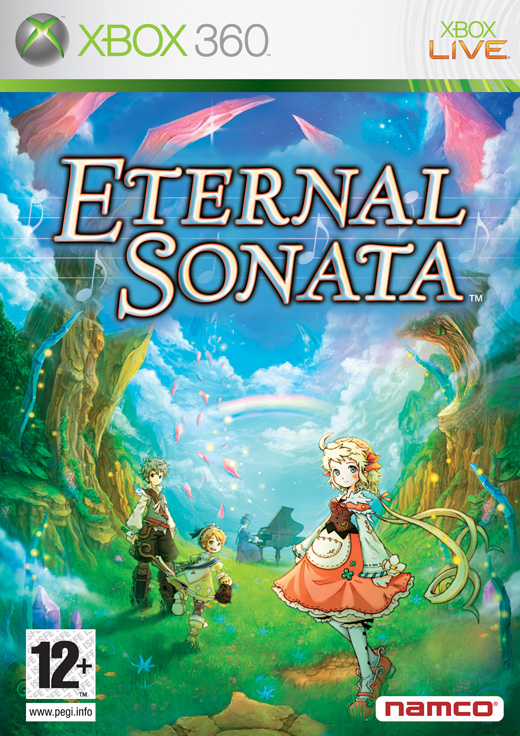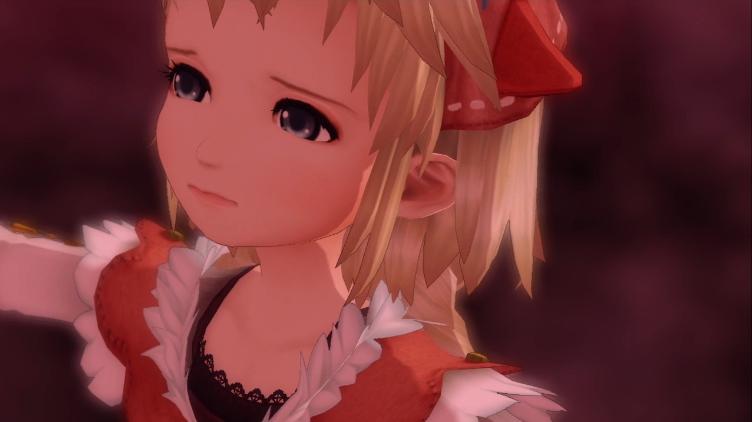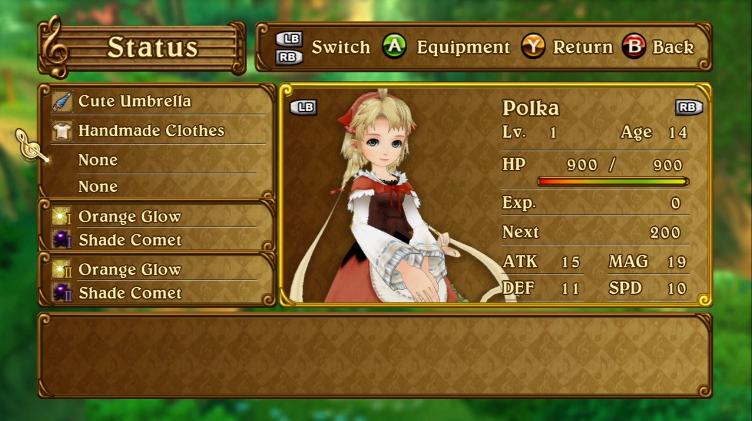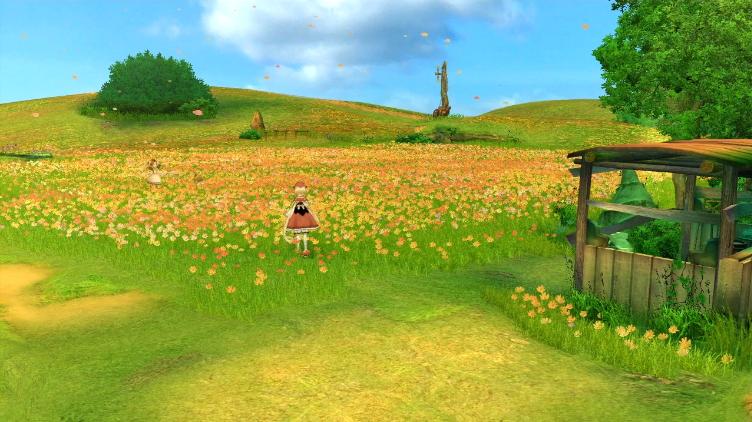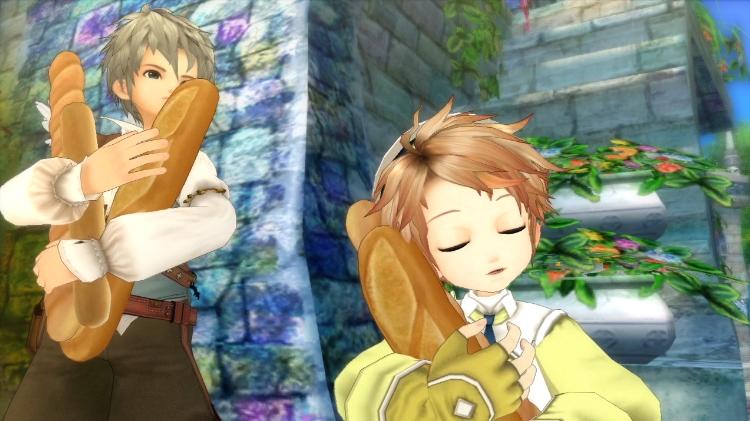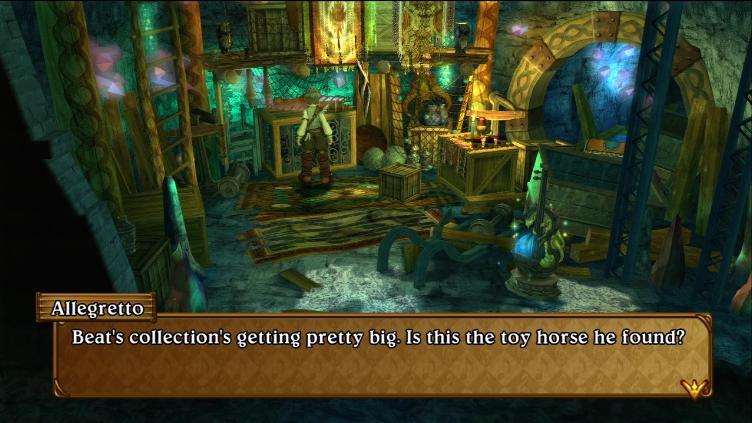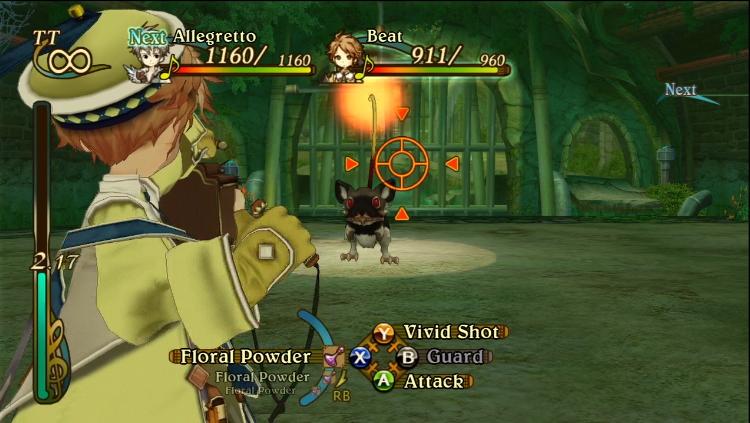ETERNAL SONATA (X360)
It’s a crying shame how little of a presence JRPGs have on the Xbox 360. Once a leading genre, Microsoft seems to have always struggled to get Triple-A JRPGs. While the 360 certainly has more than its predecessor, you can still count all of them on your fingers and toes. And not only that, most of them are mediocre efforts which suffer from a lack of effort and awful stories. Infinite Undiscovery, Final Fantasy XIII, Star Ocean: The Last Hope – the list goes on. But there is one exception to the rule, a colourful adventure which stood out in a hugely crowded year for gaming. That game is Eternal Sonata.
Based on the life of influential composer Frederic Chopin, almost all of the game is a dream Chopin creates while lying on his deathbed. Within this dream, he rallies with a group of different but friendly companions, ranging from the Robin Hood-esque thief Allegretto to a group of revolutionaries. Most of the plot concerns the tyrannical reign of Count Waltz, as the group attempt to convince him to lower tax on mineral powder. Standard, but benefiting from well voiced characters, there are a few interesting themes under the surface. Character names pay tribute to Chopin, and ideas on greed and consumption are subtly inserted. Sadly, the ending destroys said subtly; bashing you over the head to make sure everyone understands the messages in play. It’s a shame, because Tri-Crescendo were so careful, only to be so careless.
Based on the life of influential composer Frederic Chopin, almost all of the game is a dream Chopin creates while lying on his deathbed. Within this dream, he rallies with a group of different but friendly companions, ranging from the Robin Hood-esque thief Allegretto to a group of revolutionaries. Most of the plot concerns the tyrannical reign of Count Waltz, as the group attempt to convince him to lower tax on mineral powder. Standard, but benefiting from well voiced characters, there are a few interesting themes under the surface. Character names pay tribute to Chopin, and ideas on greed and consumption are subtly inserted. Sadly, the ending destroys said subtly; bashing you over the head to make sure everyone understands the messages in play. It’s a shame, because Tri-Crescendo were so careful, only to be so careless.
Still gorgeous several years later, Eternal Sonata oozes visual splendour from its opening cut-scene. Colours pop with vivid clarity and illuminate every aspect of the game. Characters are detailed and animate smoothly during cut-scenes and combat, aside from some spotty lip-synching likely caused by translation issues. Tri-Crescendo have crafted a series of lush and varied landscapes, from the bustling city centre of Ritardando to the eerie and darkly coloured Lento Cemetery. Though monster designs aren’t as varied as they could be, they do change to match the scenery behind them – such as being tinted with dark hues during the above Cemetery level. Though you could level a few small issues, Eternal Sonata is just a gorgeous game brimming with personality and colour.
The audio is also far superior to the horrific translations of recent memory, with solid English translation bar a couple of irritating characters and oddly spoken lines. On the other hand, the music is unsurprisingly extraordinary. With a mix of songs composed by Chopin and new music created for the game, it’s beautifully composed and carefully placed. Cut-scenes, in particular, smartly place each piece while avoiding feeling cheap. You could argue it doesn’t quite match the best of the Final Fantasy series, there are still tons of fantastic tunes which you can listen to through the main menu. Even the sound effects are tight, with a nostalgic feel to the dings as you pick up items. In the end, Eternal Sonata is just a treat on the senses.
While an audiovisual treat, ES is admittedly not as noteworthy with its gameplay. While intensely solid, it’s far from the most in-depth RPG, suffering from linearity and a lack of challenge. Gorgeous as the scenery is, it can feel a little empty, lacking the same freedom as the best games in the genre. And while less of a grind, it swings a bit too much in the other direction, leaving you able to pass most fights and bosses without breaking much of a sweat. While this allows more people to experience the story and visual splendour, it’ll end up boring the more hardcore JRPG fans that love the grind and found the likes of Vagrant Story easy.
The audio is also far superior to the horrific translations of recent memory, with solid English translation bar a couple of irritating characters and oddly spoken lines. On the other hand, the music is unsurprisingly extraordinary. With a mix of songs composed by Chopin and new music created for the game, it’s beautifully composed and carefully placed. Cut-scenes, in particular, smartly place each piece while avoiding feeling cheap. You could argue it doesn’t quite match the best of the Final Fantasy series, there are still tons of fantastic tunes which you can listen to through the main menu. Even the sound effects are tight, with a nostalgic feel to the dings as you pick up items. In the end, Eternal Sonata is just a treat on the senses.
While an audiovisual treat, ES is admittedly not as noteworthy with its gameplay. While intensely solid, it’s far from the most in-depth RPG, suffering from linearity and a lack of challenge. Gorgeous as the scenery is, it can feel a little empty, lacking the same freedom as the best games in the genre. And while less of a grind, it swings a bit too much in the other direction, leaving you able to pass most fights and bosses without breaking much of a sweat. While this allows more people to experience the story and visual splendour, it’ll end up boring the more hardcore JRPG fans that love the grind and found the likes of Vagrant Story easy.
Despite this, the combat system is interesting. A blend of turn-based traditions and action-orientated combo fighting, it stands out as fresh. Everything is governed by a time meter, and you can strike, heal and perform special attacks which eat into this time. Enemies are also governed by this time restraint, tasking you with balancing offence and defence. As you progress, your party level increases, tweaking elements of combat further. Combos become a bigger focus, introducing Echoes, which allow you to perform a powerful special move by building your combo. You even gain the ability to chain attacks, though Tactical Time – a stage which allows you to plan your attack – is removed. The last key to the puzzle is light/dark areas, which change your attacks and monster strength. While your moves are better, enemies morph into tougher variants when in darkness. Overall, it’s a fun and interesting system which stays entertaining throughout.
It’s a shame that Eternal Sonata is a little on the short side. Your first playthrough will probably clock in at just under thirty-hours, but there’s reason to play for seconds. Encore Playthrough, essentially a New Game+, ramps up the challenge as you find more items, challenging enemies and extra quests on your second run. There’s also a whole host of exclusive collectibles which can only be accessed on this second playthrough. It naturally will more than double your time, but even then it is still pretty short. You’ll probably struggle to push over the hundred-hour mark.
Issues aside, Eternal Sonata is a surprising, enjoyable JRPG. It may not rank as high when compared to the all-time greats, but it easily stands out in comparison to its stifling competitors. Stunning, engaging to play and avoiding most tropes, it is only let down by linearity, a lack of challenge and short length. But those who can look past these issues will definitely enjoy themselves, and even those not overtly keen on JRPGs will be able to get stuck in with this one. Much like the composer’s music, Eternal Sonata is a treat on the senses.
It’s a shame that Eternal Sonata is a little on the short side. Your first playthrough will probably clock in at just under thirty-hours, but there’s reason to play for seconds. Encore Playthrough, essentially a New Game+, ramps up the challenge as you find more items, challenging enemies and extra quests on your second run. There’s also a whole host of exclusive collectibles which can only be accessed on this second playthrough. It naturally will more than double your time, but even then it is still pretty short. You’ll probably struggle to push over the hundred-hour mark.
Issues aside, Eternal Sonata is a surprising, enjoyable JRPG. It may not rank as high when compared to the all-time greats, but it easily stands out in comparison to its stifling competitors. Stunning, engaging to play and avoiding most tropes, it is only let down by linearity, a lack of challenge and short length. But those who can look past these issues will definitely enjoy themselves, and even those not overtly keen on JRPGs will be able to get stuck in with this one. Much like the composer’s music, Eternal Sonata is a treat on the senses.
|
VERDICT
Visual: 9/10
Audio: 8/10 Gameplay: 7/10 Longevity: 6/10 OVERALL: 7/10 |
